The secrets of soil: Can yard dirt boost our happiness and health?
Scientists believe humble soil can help our health in many ways
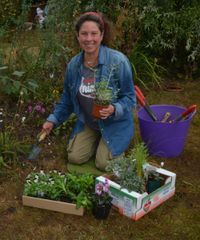
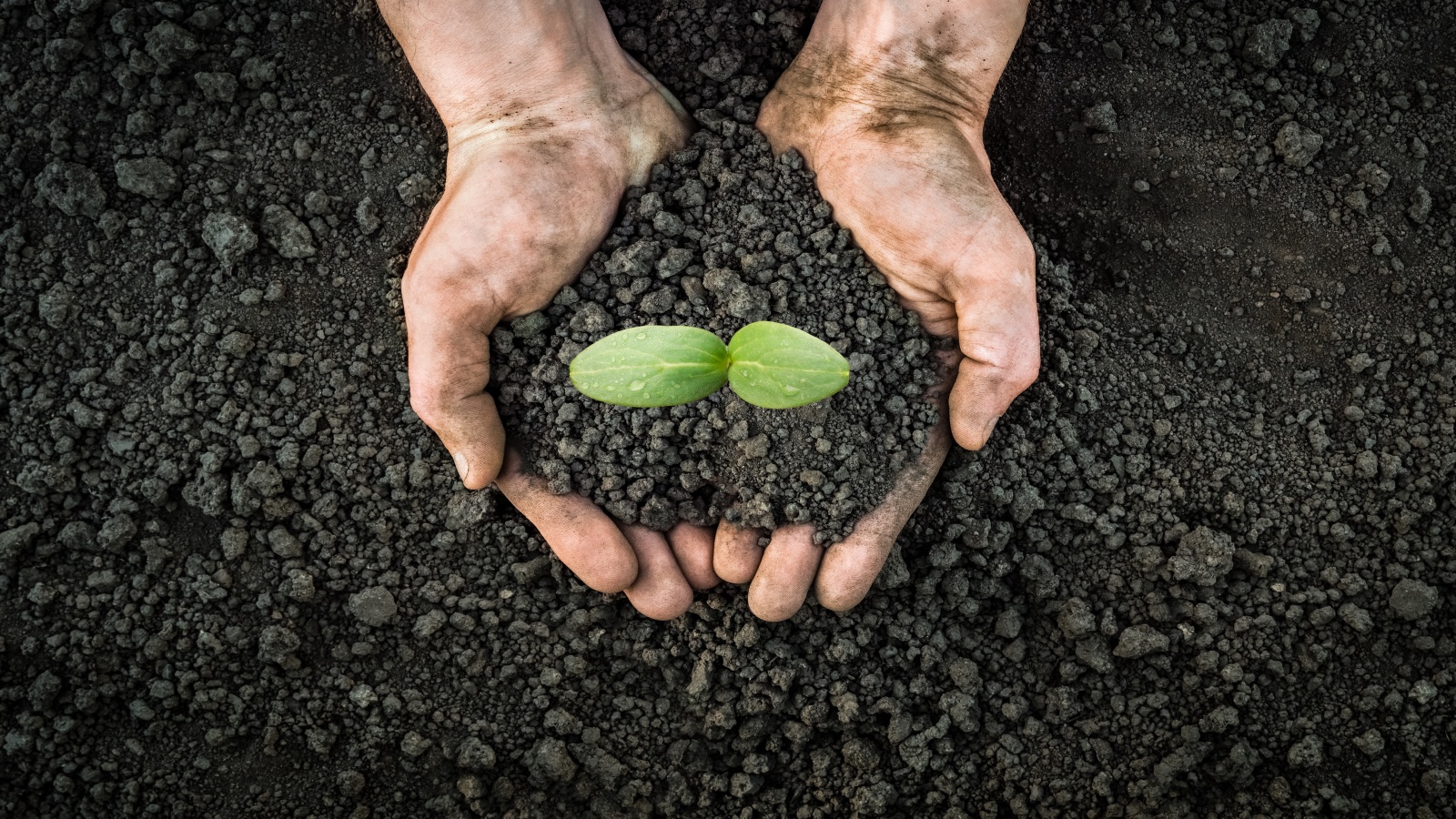
Design expertise in your inbox – from inspiring decorating ideas and beautiful celebrity homes to practical gardening advice and shopping round-ups.
You are now subscribed
Your newsletter sign-up was successful
Want to add more newsletters?

Twice a week
Homes&Gardens
The ultimate interior design resource from the world's leading experts - discover inspiring decorating ideas, color scheming know-how, garden inspiration and shopping expertise.

Once a week
In The Loop from Next In Design
Members of the Next in Design Circle will receive In the Loop, our weekly email filled with trade news, names to know and spotlight moments. Together we’re building a brighter design future.

Twice a week
Cucina
Whether you’re passionate about hosting exquisite dinners, experimenting with culinary trends, or perfecting your kitchen's design with timeless elegance and innovative functionality, this newsletter is here to inspire
The healing properties of many plants are renowned when it comes to our mental and physical wellbeing, but did you know that soil has benefits too?
Yes, the humble bedrock of our yards isn’t only good for growing plants - it can give us a boost as well.
It is a well-known fact that a little dirt does us good, and that sterile environments can weaken our inner defences, but now scientists have discovered that there is a positive link between all soil types, their microbes and various aspects of human health.
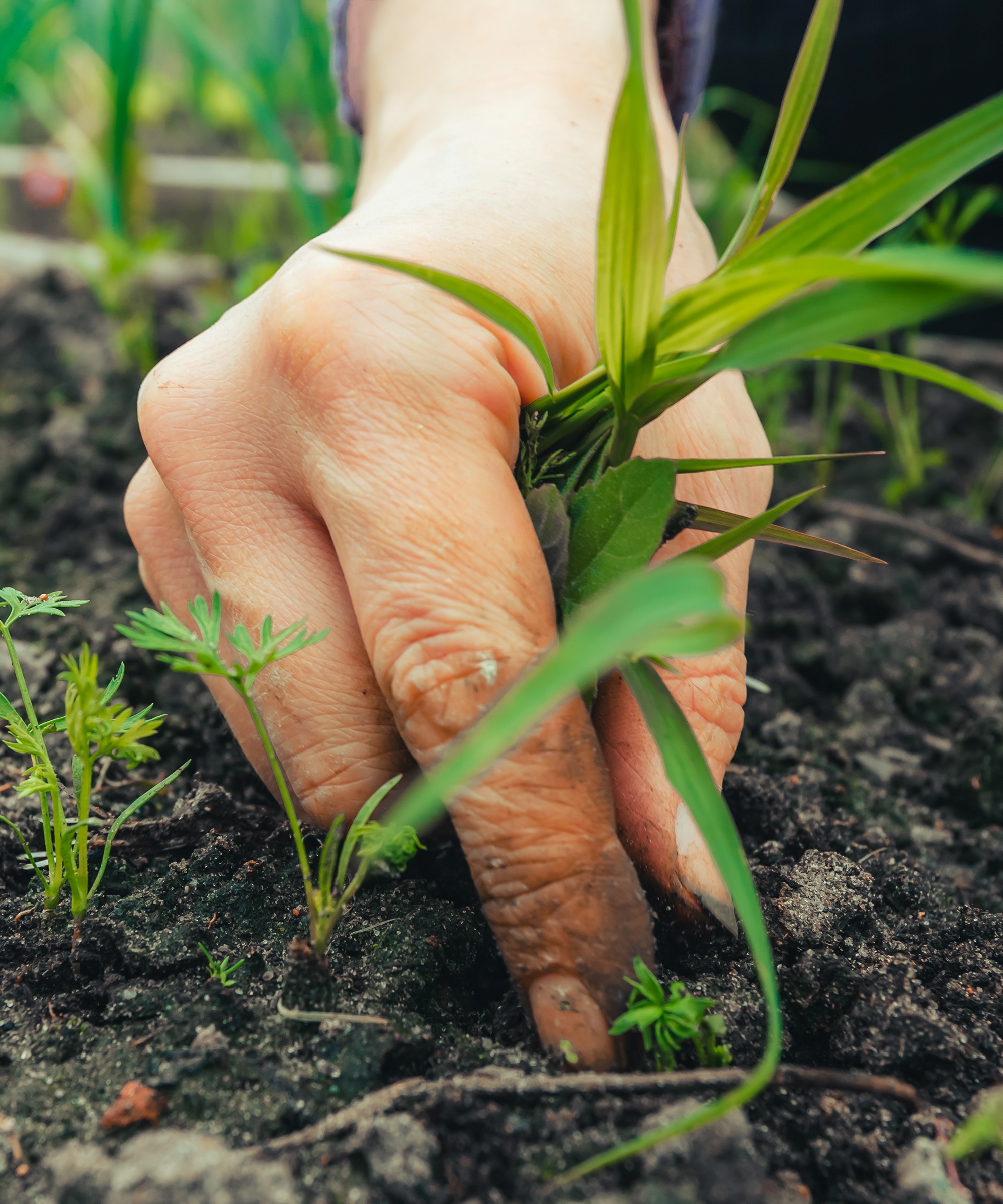
As well as helping our plants, weeding can also benefit our mental and physical health
How can soil boost our health?
Going into the yard and getting our hands into the soil is a great way of de-stressing and letting go of the day’s tensions and frustrations.
After a tough day at work, I find it incredibly mood-boosting to go out and get weeding - even in the cold days of winter. There is something almost meditative about the process that soothes a buzzing mind and gives the body the freedom to move and stretch.
But as well as gardening’s physical yogic properties, soil has been found to contain a microbe called Mycobacterium vaccae that, among other things, is thought to mirror the effects of antidepressants such as Prozac.
How does soil therapy work?
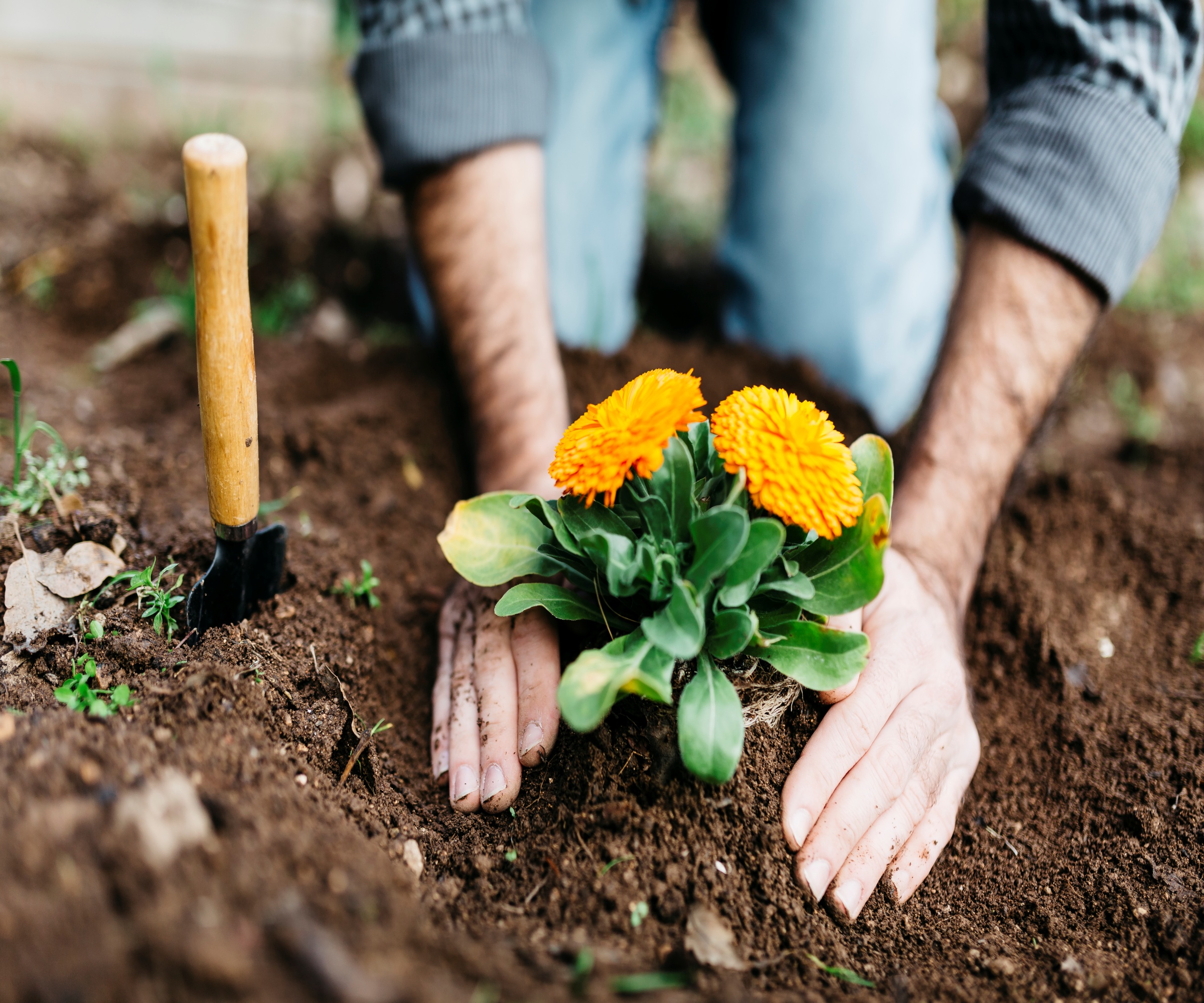
Soil microbes may mean that planting is as beneficial for mind and body as it is for plants
The acts of planting, weeding, getting our fingers in the soil are regarded by many as a therapy - no wonder so many of us see our yards as our happy place.
Design expertise in your inbox – from inspiring decorating ideas and beautiful celebrity homes to practical gardening advice and shopping round-ups.
But coming into contact with beneficial soil nutrients and microbes, either through touch, inhalation or even accidentally ingesting small amounts via homegrown produce, raises our levels of cytokine, tiny immunity-boosting proteins that control levels of inflammation.
As humans evolved, they created natural so-called 'buddy systems' with beneficial microbes and organisms that helped shore up our internal defences and gut microbiomes - which are increasingly recognised as the cornerstone of our mental and physical wellbeing.
In 1989, British scientist David Strachan coined the term 'hygiene hypothesis', suggesting that as human beings have advanced and started to live in environments increasingly isolated from natural microorganisms, we started to experience higher rates of immune disorders and allergies such as asthma.
However, recent research has shown that when we come back into contact with soil-dwelling superpowers such as M. vaccae, their beneficial effects start to reboot and can release benefits for up to three weeks afterwards.
Three key soil benefits to health
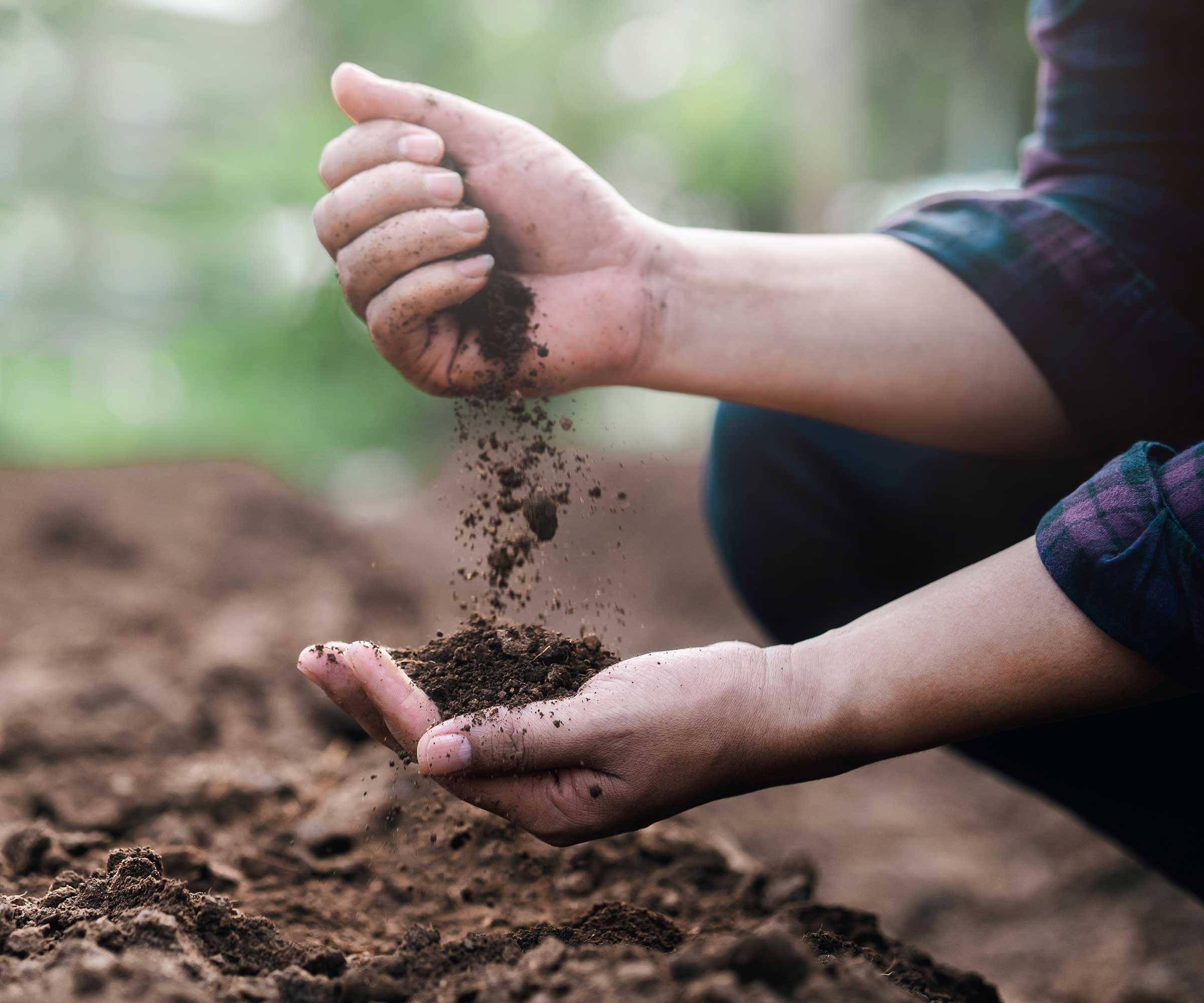
Scientists have so far discovered that Mycobacterium vaccae have three main benefits to humans. They are:
- By binding to receptors that block inflammatory pathways, the microbes can help reduce inflammation and stress-related complaints, potentially offering relief to sufferers of rheumatoid arthritis and Crohn’s disease.
- Beneficial soil microbes can raise serotonin levels in the brain, improving our mood and brain functions and making us less likely to be troubled by stress. A lack of serotonin has been linked to anxiety, depression and obsessive behaviours, so the fact that soil contains natural antidepressants could be a major breakthrough in the help available to sufferers.
- It is thought that Mycobacterium vaccae can also be used in the fight against asthma, allergies and other conditions caused by respiratory inflammation. The tiny microbes help to strengthen our auto-immune systems and resistance to irritants.
Where can I read more about soil therapy?

Research has found that children who play outside in rural areas are healthier than those who live and play in towns and cities
Reports have been published in several countries on the benefits of increased close association with soil.
In 2004, British cancer specialist Dr Mary O'brien published a paper explaining how after being injected with inert M. vaccae, the quality of life and mood of lung cancer patients improved.
In Finland in 2020, further studies showed that children attending daycare in natural environments had more diverse gut and skin microbes than their peers growing up in urban areas. It was also found that children who played outside in rural areas had better eyesight and fewer allergies than their city peers.
Research carried out by Christopher Lowry, Integrative Physiology Professor at the University of Boulder Colorado, has shown that anti-inflammatory fat found in the soil bacteria M. vaccae can help suppress stress.
In 2019 in Science Daily,he said: 'The idea is that as humans have moved away from farms and an agricultural or hunter-gatherer existence into cities, we have lost contact with organisms that served to regulate our immune system and suppress inappropriate inflammation.
'That has put us at higher risk for inflammatory disease and stress-related psychiatric disorders.'
FAQs
Is soil good for your mental health?
Studies conducted on mice by scientists at Bristol University and University College London in the UK have shown that soil bacteria works in a similar way to anti-depressants.
The report, in Medical News Today, states that the microbes commonly found in soil trigger the brain to produce serotonin, one of the body's most important 'tools' that regulates everything from mood to digestion.
Low serotonin levels can lead to a range of issues as diverse as OCD, aggression and irritable bowel syndrome, so by digging in the dirt, we can improve our wellbeing in more ways than we realise.
How can we get the benefits of soil now?
There are so many easy ways. Gardening is the obvious choice, and it is important to get your children and grandchildren interested in growing outdoors too.
There are lots of garden projects you can involve children in, even in winter as long as they are wrapped up warm.
It also pays to go out into the great outdoors as much as you can, because even scuffing up the ground on walks can boost your access to important microbes and you will also feel the benefits of fresh air and sunshine.
While we always advocate the benefits of gardening and getting your fingers in the dirt, we do advise you to wash your hands afterwards - especially if you're going to be eating or preparing food - and protect any open cuts and grazes on your hands with gloves or band-aids.
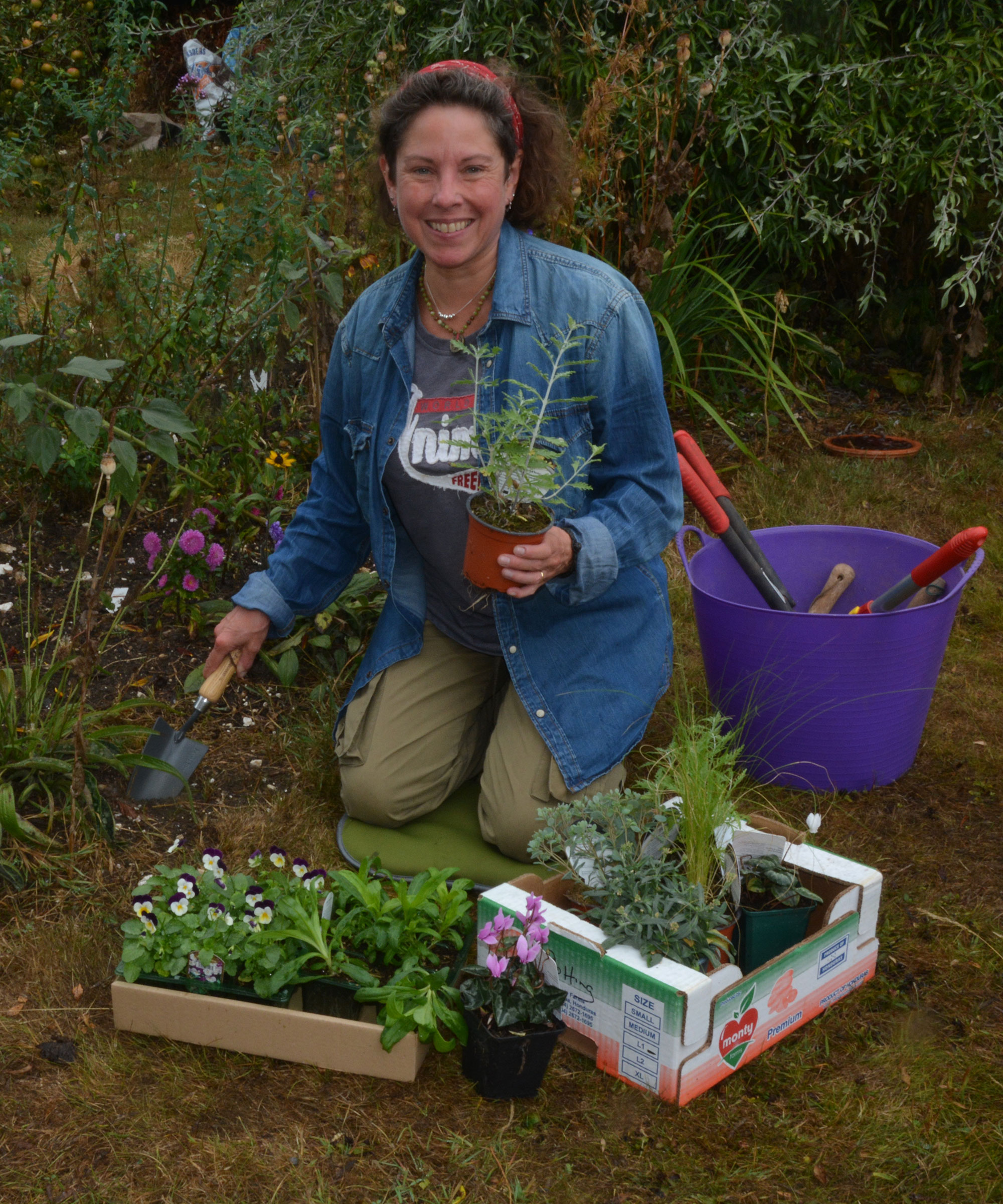
Ruth is a Contributing Editor for Homes & Gardens, and formerly Gardening Editor of Amateur Gardening magazine. She is horticulturally trained, with a qualification from the Royal Horticultural Society. Her work for Amateur Gardening, the world's oldest weekly gardening publication, involved matching gardening tasks with each season, covering everything from sowing and planting, to pruning, taking cuttings, dealing with pests and diseases and keeping houseplants healthy. She is an expert in ornamental plants and edible crops, and everything she writes about and photographs is in her own garden, that has been a work in progress since her family moved there in 2012.